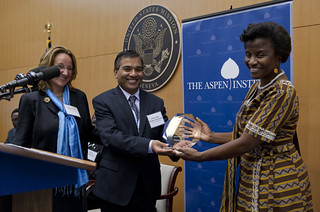We encourage Christians to engage with pop-culture, to reach out to non-believers and build relationships. If you do this, it won’t take long before you meet someone who hates religion because they believe it is the root of all evil in the world.
And their belief actually has a legitimate foundation. Families have been destroyed, wars have been fought, and genocide has been committed, all in the name of religion.

Does this mean we should ban all religion? Are all religions the same in that they create conflict? Does it just boil down to extremists in every camp?
I’ve been thinking about this a lot lately, and I think a few things must be said.
Five Observations:
First, I argue that it is illogical for an atheist to blame religion for the evils of this world. Why? Because if they believe there is no God or spiritual force in the world, then people are the direct cause of religion. It is not religion, then, that causes evil in the world. People are responsible.
Second, removing religion does not solve any problems. The best example, of course, is the Soviet Union. They outlawed religion and worship, everyone was to be equal and live in harmony. Only problem was, if you didn’t agree with this Communist paradise, then you were killed.
No one knows for sure, but most believe that Stalin had 20 million people killed during his reign. Clearly, removing religion from a society did not promote peace and solve problems.
Third, some religions promote peace more than others. I haven’t researched every religion in the world enough to flesh this out, but some religions clearly promote peace or violence more than others. In other words, you cannot blame all religions for the wars and problems of the world.
Fourth, we must analyze each religion’s actual teachings. I recently heard someone say, “you can’t tell me that, at its core, Christianity doesn’t promote violence.” Why did this person say that? Because of historical events like the Crusades, in which Christians did some pretty horrendous things. But history does not demonstrate the core of what a religion is. People can twist religions to their own benefit and lead others astray. For this reason, we must look at the original texts.
Fifth, as a whole, I don’t believe religion is necessarily good or bad. Religion is simply something that unites large groups of people. Similar to country, family, race, or favorite sports teams, people have formed their identities around things that unite them.
Those united groups often have leaders who are often capable of leading people to do good or ill. Religion, then, is a tool in which the leaders can call people to action. The Crusades were not the idea of peasant farmers, rather the priests called them to a Holy War.
So does religion cause war? It absolutely can be used to cause war, but so can any other thing that we unite around. The Holocaust, for example, was not the idea of a German baker, but rather people united around a national identity and under a leader who they believed would be the savior of Europe. Unfortunately, he used his power to lead them to evil.
Lastly, I want to answer a more pertinent question for Christians. As I said, we can’t assess all religions equally. The question we must ask ourselves, then, is this:
Does Christianity cause war and violence and evil?
As we established, we need to turn to the original text. Here are a three key points of the Christian religion:
1) Jesus, the son of God and savior of the world, did not lead a revolution against the Romans as Israel expected. Rather, he gave himself up, like a lamb led to slaughter. Jesus died to save people. He did not fight back, he was entirely peaceful, and he calls his people to do the same.
2) Jesus commands us to love our enemies in Matthew 5:44 – “But I say to you, Love your enemies and pray for those who persecute you.”
3) Romans 12 is a revolutionary passage about the way we should live, and verses 17-21 directly apply here: “Repay no one evil for evil, but give thought to do what is honorable in the sight of all. If possible, so far as it depends on you, live peaceably with all. Beloved, never avenge yourselves, but leave it to the wrath of God, for it is written, “Vengeance is mine, I will repay, says the Lord.” To the contrary, “if your enemy is hungry, feed him; if he is thirsty, give him something to drink; for by so doing you will heap burning coals on his head.” Do not be overcome by evil, but overcome evil with good.”
At it’s core, then, Christianity does not call us to violence. It calls us to live like Christ, peacefully and lovingly towards all. We will be persecuted for what we believe, but we should never persecute others for what they believe. We are not to convert people with the sword, we are not to burn people at the stake we disagree with. Christians have done this in the past, but they have been wrong to do so.
It’s time we started to change this perception. We cannot change the past, but we can influence the future.
How will we change this perception? Simple. By following the words of Romans 12. When people accuse you and insult you, then respond in love. When someone persecutes you for your beliefs, then respond in love. When your enemy needs help, then offer it to them. When you disagree with someone, let them know you disagree, but make sure they know they are always welcome to your house for dinner. When you meet someone who has been judged or persecuted by “christians,” make sure you apologize to them and start demonstrating what true love should be.
You won’t be able to do it in your own power. You can’t. You need the grace and power of Jesus. Then, and only then, will you be able to live peaceably with those you disagree with.
And if we all learn to love the way Jesus loved, then I am convinced the world will be a more peaceful place.
What do you think? Does religion encourage violence or help bring peace?


















